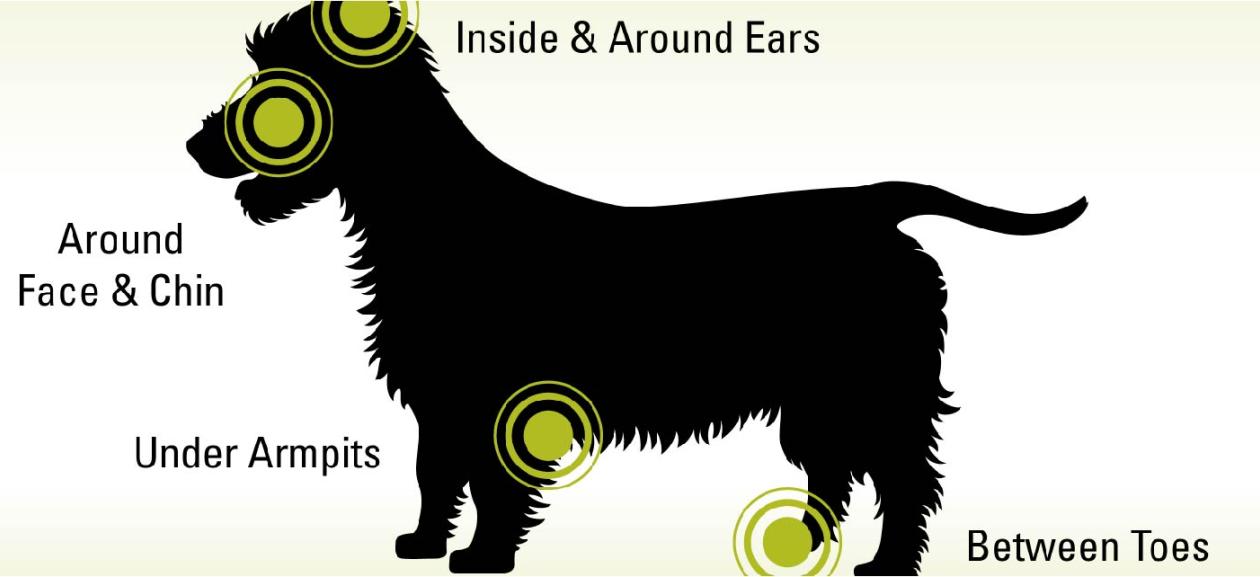
Protect Your Pet During Heavy Tick Season
Tick bites can cause serious diseases and health issues – even for city pets
PORTLAND, Ore. – As the warmer weather brings out bugs of all kind, tick prevention should be on the forefront of every pet owner’s mind – even those who live in the Portland Metro area. Doctors at DoveLewis Veterinary Emergency & Specialty Hospital warn pet owners that tick bites can result in a variety of diseases, some even fatal.
“Tick-related issues in Oregon are most prevalent in June and July as the weather starts to warm up,” said Dr. Ladan Mohammad-Zadeh, DoveLewis critical care specialist.
Common tick-borne diseases
Ticks are often picked up in rural areas and woods, latching onto pets or people as they walk through bushes or tall grass. However, it is not unheard of for animals to also attract ticks in an urban setting.
The most common illness carried by ticks is Lyme disease, which can affect animals and humans. Symptoms can include a rash around the infected area, fever, lethargy, loss of appetite, swelling joints, and the inability to move parts of the body.
Rocky Mountain Spotted Fever is another ailment that spreads through ticks. Symptoms include fever, loss of appetite, muscle and joint pain, vomiting, coughing, difficulty breathing, pale gums, nosebleeds and bruising.
While rare in the Pacific Northwest, certain species of ticks can even cause paralysis.
Prevention
Pets who spend any time outdoors in the summer should be equipped with tick prevention medication. Tick prevention is available as a pill, topical treatment or collar. Pet owners should talk to their vets to determine what type is best for their animal. Be sure to use medications as directed. Pets can end up in the hospital if they’re given the wrong kind or wrong dose.
Most importantly, owners should perform a thorough tick check on a dog’s entire body on a regular basis, especially after any outdoor hiking adventures. DoveLewis medical staff recommends paying close attention to the folds of the skin, between the toes, under the armpits, and around the head – all common places for ticks to burrow.
Remove ticks carefully using tweezers or a tick remover. (There are several urban legends surrounding tick removal. Never use lighters, matches, Vaseline or nail polish remover to remove the ticks.) Store the tick in a small container of alcohol so it can be identified and tested if your dog shows signs of a tick-borne illness.
If a pet shows signs of a tick-borne illness, contact a veterinarian or DoveLewis immediately.
###
Recent Posts
Marijuana Toxicity in Pets: What You Need to Know
As availability of marijuana increases in the Portland area since legalization, so have the number of marijuana toxicity cases treated at DoveLewis. Our doctors warn pet owners of the potential risks to their dogs and cats if marijuana is ingested in any form.
Dog Bite Prevention Tips
Now more than ever, people are venturing outside with their pets to get fresh air. This is increasing the possibility of interactions with other dogs that can lead to bites and injuries. DoveLewis is sharing tips to help prevent this from happening so animals and humans can stay safe.
How to Build a Pet First Aid Kit
Every pet owner should have a pet first aid kit handy in case of an emergency. If you need to put one together, we’ve got you covered!



